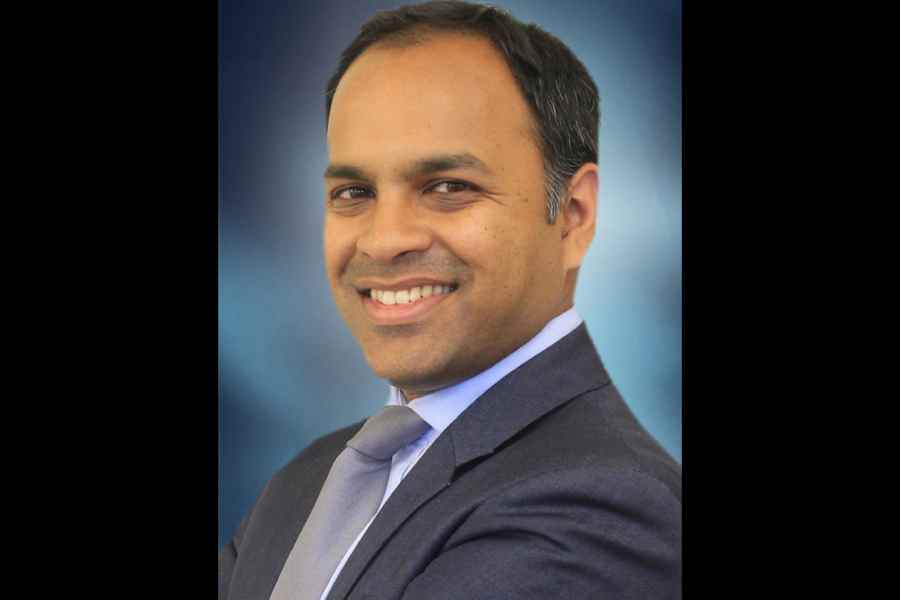Good doctors
Buckingham Palace has not confirmed the name of the doctor who operated on King Charles III recently but most media sources assume he was looked after by Ranan Dasgupta, the current ‘Serjeant-Surgeon’. This makes him the most senior member of the medical team attached to the royal household. Dasgupta took over the post last year from another Indian-origin doctor, Satyajit Bhattacharya, who looked after the late Queen from 2016 to 2023. Dasgupta specialises in surgery for gallstones, hernias and liver and pancreatic diseases. He worked at The London Clinic where the Queen was treated for gastroenteritis in March 2013 and Prince Philip had an exploratory abdominal operation the following month.
Looking after the monarch, even for routine operations, is an awesome responsibility. Dasgupta, who was educated at Cambridge, has published for 50 years and is said to be an expert in the field of urology.
The King sought publicity for his condition to encourage men over 50 to have their prostates checked as well. It so happens that Catherine, the Princess of Wales, had to stay for a fortnight at The London Clinic after abdominal surgery. According to the Daily Telegraph, “Dr Bhattacharya... is highly regarded by the Royal family and may well be treating the Princess”. He once wrote: “The politics of race and identity is a difficult area and I do not like to talk in public about it. But the recent remarks, by someone with aspirations to head the NHS, about wanting to ‘reduce the dependence of the NHS on foreigners’ has left me disturbed... I am very proud of my Indian roots and qualifications. I am equally proud of my British citizenship.”
Lead from the front
Jawaharlal Nehru apparently fixed it for the late Queen Elizabeth II to become the head of the Commonwealth in 1952, following the death of her father, King George VI. I have this from Robert Hardman, a royal writer at the Daily Mail, who has published a new biography, Charles III: New King. New Court. The Inside Story.
Hardman reveals: “During the reign of Elizabeth II, the big question was whether the Commonwealth could survive deep divisions over some of the great international divides of the day, notably racial politics in Rhodesia and South Africa. For Charles III, there are — at present — no fears of a great schism. The organisation is a paragon of unity compared to years gone by. In 2018, for example, its members were unanimous in endorsing the then Prince of Wales as future head. The role has never been hereditary. Elizabeth II was not appointed until the Indian prime minister, Jawaharlal Nehru, sent a telegram of condolence on the death of her father, adding he ‘welcomed’ her as the new Head of the Commonwealth. The other member states then followed suit.”
Lost letters
Many years ago, I gave my wife a copy of Love Letters: An Anthology from the British Isles 975-1944, edited by James Turner. The last letter in the book is from the Welsh poet, Alun Lewis, written in March 1944, to his schoolteacher wife, Gweno Ellis. Having been posted to India, he fell in Burma during the Japanese advance. Goodbye was a prescient farewell poem: “So we must say Goodbye, my darling,/ And go, as lovers go, for ever;/ Tonight remains, to pack and fix on labels;/ And make an end of lying down together.”
Such a book may not be possible today because, in the age of email and text messages, people have mostly given up writing letters. In Britain, Royal Mail is bound by law to deliver post six days a week but it wants to cut out Saturdays and perhaps reduce the service to only three days a week. Royal Mail says the current system is built for 20 billion letter deliveries a year, while it is now carrying out only seven billion. The figure is set to fall to four billion within five years. Meanwhile, the cost of a first-class stamp has risen to £1.25. There is something about the written word that is evocative. It would be nice to think that the art of letter writing, in pen and ink, hasn’t completely disappeared in India.
Land of dreams
My mother would often refer to Romain Rolland when we were children, though we had no idea then that he was a French dramatist, novelist, essayist, art historian, mystic and winner of the 1915 Nobel Prize for Literature. His name came up when Alex Chalk, the justice secretary and lord chancellor, ended his speech at an Indian Republic Day reception in London with a quote from Rolland: “If there is one place on the face of the earth where all the dreams of living men have found a home from the very earliest days when man began the dream of existence, it is India.”

